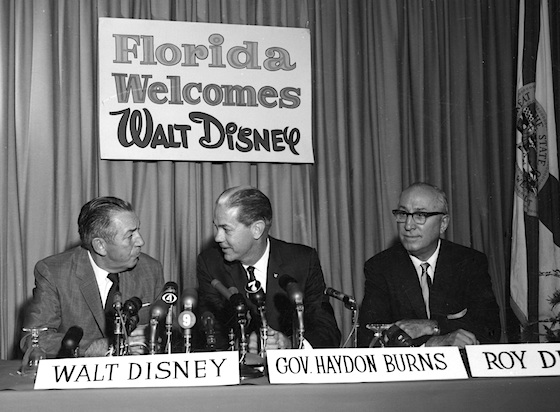
Today, Disney's world encompasses 11 theme parks around the globe, with a twelfth on its way. However, on this day, two of those parks were closed — the Disneyland and Walt Disney Studios parks in Paris — following a series of deadly attacks in the French capital on Friday evening. The parks will remain closed until Wednesday, in observance of a national period of mourning.
From a business perspective, Walt's vision was spot on — inspiring a global entertainment business that delivers wildly popular films and television entertainment and welcomes millions of guests to theme parks all over the world (More than 134 million guests last year, according to an industry report). But while Walt the businessman surely would be pleased by his company's success, Walt the optimist might be disappointed by the state of the "great big beautiful tomorrow" that he envisioned.
Walt Disney died within two years of the Florida project's announcement. His successors at the Walt Disney Company never built EPCOT (the Experimental Prototype Community of Tomorrow) but simply applied that name to a World's Fair-themed park that opened in 1982, instead. But they included in that park plenty of the optimism that fueled Walt's interest in the Florida project — with corporate-sponsored displays of ascendant technology and song-filled travelogues that offered visions of a friendly world.
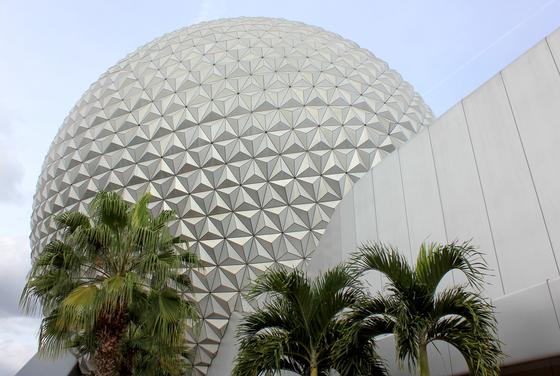
But it's hard to accept that vision today with so much anguish and fury around the world, following not just the recent attacks in France and Lebanon, but also the years of endless war in the Middle East and the resulting, massive refugee crisis.
We've written before that today's public is looking to entertainment for an escape from the state of the world. The optimism of someplace like Epcot just isn't selling as well as it did generations ago, when an expanding middle class, seemingly abundant energy, and ever-cheaper travel made the future look a paradise that was just a few years away.
But how much longer can we keep pretending to escape our reality? At what point do we realize that no superhero is really coming to save us? That no magic spell will make things right? That if anything is ever going to improve, we will need to stop ignoring our problems and instead stand strong to face and overcome them, together?
The irony is that the Epcot we've turned away from in our collective desire to escape to a better place has a lot to inspire us to make that better place where we all long to be.
The final day of the annual International Food & Wine Festival brought tens of thousands of guests to Epcot today. While surely most came simply to enjoy their last chance to enjoy all that food and drink, Epcot had plenty more today to nourish the soul of anyone weary from Friday night's news.
Start with the beautiful music, scenery, and poetry of "Impressions de France," a love letter to a nation that has endured far, far worse than what it faced on Friday night.
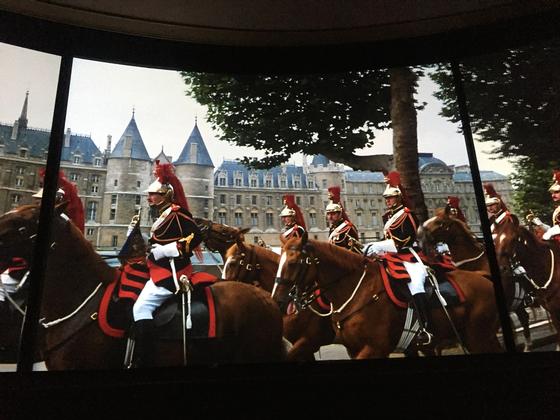
Move from there to "The American Adventure," which does not shy from addressing the mistreatment of the African slaves, Native Americans, and women who for too long were excluded from America's story. But this show reminds us that even when we get it wrong, we can make it right — that when we work together, we can make our golden dreams come true.
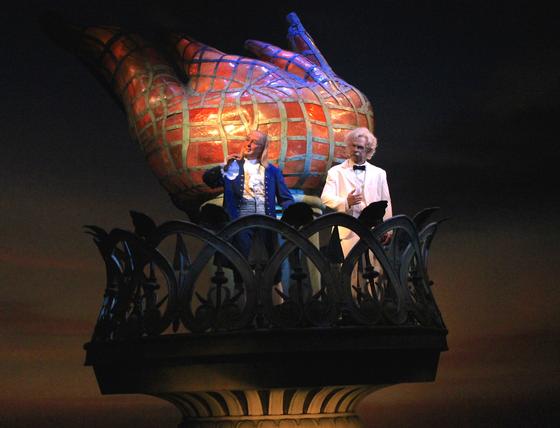
It's an important lesson, for in the days and weeks to come, those who profit from endless conflict will try to use these attacks to divide us — by religion, by race, and by nationality. Just remember that division is what feeds the hatred that fuels terrorism. Those who attacked Paris did so to elicit a backlash — not just against them and their allies, but against everyone of Muslim faith and Middle Eastern ancestry. Suicide bombers succeed only when they recruit their replacements.
Want to strike back at those who attacked Paris? Then don't stay home in fear. Keep traveling. And keep reaching out all those around you — not just to whomever you are inclined or directed to believe to be the right kind of people. Offer a smile and a greeting not just to the young hosts in Epcot's France pavilion, but also to the family in hijab posing in front of the Kingdom of Morocco sign next door. We must remember, as President Franklin Roosevelt declares in The American Adventure, "the only thing we have to fear is... fear itself."
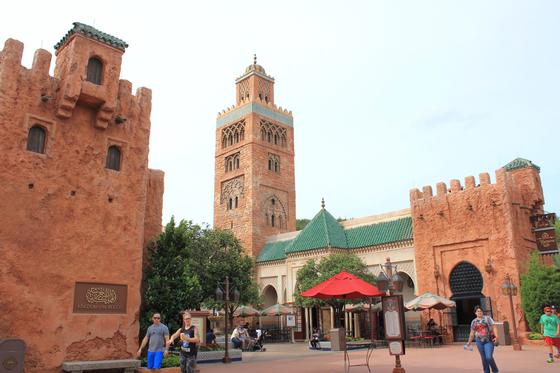
So let's wrap up with a trip on Spaceship Earth, where we learn how communication — and the cooperation it enables — helped mankind build our civilization. From the Phoenicians and their alphabet, to the Greeks and their mathematics, to, yes, the Arab scholars who developed our numbers and preserved the knowledge that would have been lost in the fall of Rome, people from around the world have contributed to our collective journey.
If we are to do our part in continuing that journey, it will be because we remember the lessons taught by those who came before us. We will remember the corrosive power of fear, and turn instead to more powerful forces — of contact, communication, and cooperation.
We are all travelers on this spaceship Earth. How we make that journey is up to us. We can make that "great big beautiful tomorrow." But no one else will do that for us. And none of us can do that alone.
TweetThere are many problems in our modern world today, but if humanity's been able to survive such things as the Black Plague and the Cold War, I'm sure we'll get through this.
And I really do hope that people do see how EPCOT can help comfort us in these times. When the Frozen ride was announced for EPCOT, I was starting to worry that it would soon devolve into just another IP-driven Orlando park; but the announcement of the Colortopia exhibit at Innoventions has given me a slimmer of hope that this may not be so. Even today, with EPCOT being a "shell of it's former self," it still teaches a lot and definitely makes me think more than any other park I've been to does. Now that is some true Disney magic right there.
Thank you! So nice to know I'm not the only person who thinks that way.
I would also like to say that in science, your workplace is like the world showcase. The vast majority of my friends in San Francisco and Sydney were born in other countries than the one we were living in (or their parents were). I think this is often true for IT as well. It would be cool at EPCOT if that concept could come across somehow in the science exhibits.
I think the World showcase should focus more on art history at the different pavilions. That still has a lot of value even if that is thorough the story for the inspiration of animated movies. Food is working well for foodies, but not all kids are that adventurous with food and some adults aren't either especially on vacation. I think that art is a great way to overcome language barriers and communicate the values of different cultures and promote respect for the people of the culture.
On the science side of things it may be better to focus on the history of science that illustrates pretty established concepts. There's no way you can make cutting edge science exhibits at WDW. The 2 years it takes to develop them would make them obsolete on opening day. Science text books for undergrads are many times not even used because they are out of date within a year of publication. If you look at that big bang sequence of Fantasia it isn't too far off of what we still think, but if Disney had made an exhibit from that they could have tweaked it when it was discovered that there was a comet strike that coincided with the extinction of the dinosaurs, for example. It would still teach very important concepts even if they are not new.
in the supposedly idillic 1950s beating your wife was a joke, and also considered normal male behaviour - an I Love Lucy Episode even thought this was a fitting subject for an episode of a sitcom!
Now gay people, women, minorities... These are all treated with much more respect than they were 30, 40 or 50 years ago.
Sure the incidents in Paris are tragic, but a lot of other tragedy has been slowly erased form our lives.
We've become a much more peaceful, open minded, kindly society, and this is cause to celebrate. Epcot's dreams have in many ways come true.
- Robert Ruffo
This article has been archived and is no longer accepting comments.